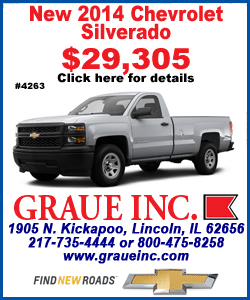|
 The deal, the largest in Israel's corporate history, prompted Teva
to drop its $40 billion hostile bid for Mylan, which had hit a snag
when a Dutch foundation linked to the target bought temporary
control of half the company in an attempt to block the takeover. The deal, the largest in Israel's corporate history, prompted Teva
to drop its $40 billion hostile bid for Mylan, which had hit a snag
when a Dutch foundation linked to the target bought temporary
control of half the company in an attempt to block the takeover.
It also will allow Dublin-based Allergan, the third-largest generic
drugmaker in the United States, to focus on branded drugs and pay
down its debt.
"Allergan's business is more high end (than Mylan). It's a more
interesting business ... a profitable business and it's well
managed," said Gilad Alper, an analyst at brokerage Excellence
Nessuah, noting a "friendly deal" is preferable to a hostile one.
Allergan's generic business is seen as a better fit than Mylan
because it will improve Teva's distribution channels and because
Allergan is strong in so-called biosimilar drugs, as well as
injectables, and has a presence in India.
Pressure has been growing on Teva, already the world's biggest
generic drugmaker, to find new revenue sources to combat the start
of competition this year for its multiple sclerosis drug Copaxone.
Copaxone accounts for about half of Teva's profit.

The acquisition is the latest in an unprecedented wave of healthcare
deals since the start of 2014, stretching from large drugmakers
buying up smaller rivals, to consolidation among makers of generic
medicines, to tie-ups between insurers.
Global healthcare M&A so far this year reached $398.5 billion as of
July 23, up 80 percent on a year ago, according to Thomson Reuters
data.
HIGHLY COMPETITIVE
Economies of scale are particularly important in generics, given the
relatively low margins involved and the highly competitive nature of
the market.
Teva shares, which had been weighed down by the Mylan uncertainty,
jumped 10 percent in Tel Aviv and were up 11.8 percent at $58 in
premarket trading in New York. Mylan shares slid 12 percent to $58
in pre-market trading.
"There is only one entity that would stand to lose (from
Teva-Allergan), which is Mylan," said Cowen and Co analyst Ken
Cacciatore, who believes Teva's shares will reach $100.
Mylan said it would continue its acquisition of Perrigo.
Teva will pay $33.75 billion in cash and $6.75 billion in shares,
representing a 10 percent stake in the Israel-based company, Teva
said in a statement. The deal is expected to close in the first
quarter of 2016.
Though the Teva-Mylan feud has hogged the industry spotlight since
April, Allergan' generics business may have been Teva's first
choice. Teva CEO Erez Vigodman is believed to have approached
Allergan last year, which was called Actavis prior to a March
merger.

[to top of second column] |

In June 2014, just a few months after joining the company, Vigodman
hired Sigurdur Olafsson, former head of Actavis's generic drug
business, to fill a similar role at Teva.
"My sense always was that Mylan was Teva's Plan B," said Benny Landa,
an industrialist who led an investor bid last year to shake up
Teva's board, calling the deal "brilliant".
Landa, who initially questioned the logic of Teva's bid for Mylan,
said he believes Allergan's business was "culturally a much better
fit, as evidenced by the behavior and the style of Mylan's
leadership," said Landa.
CULTURAL FIT
Mylan Executive Chairman Robert Coury repeatedly rejected Teva's
offer, saying the combination of Teva and Mylan was "without sound
industrial logic or cultural fit."
Vigodman said the combined companies will have proforma revenue of
$26 billion and earnings before interest, tax, depreciation and
amortization of $9.5 billion in 2016.
"Our respective portfolios of generic medicines and applications are
highly complementary," he said. "This acquisition reinforces our
strategy, accelerates growth and diversifies revenues both by
product and geographically, supporting our new business model."
Teva, which will gain a portfolio of more than 1,000 products, said
it believes the acquisition will bring a double-digit boost to
adjusted earnings per share in 2016 and a more than 20 percent
benefit in years two and three following the close of the deal.
It expects cost synergies and tax savings of $1.4 billion annually
by the third anniversary, from efficiencies in operations,
manufacturing, and sales and marketing.

It also expects the acquisition to generate free cash flow of $6.5
billion in 2016 and increased free cash flow in subsequent years.
This means it will be able to pursue acquisitions to expand its
portfolio in both speciality pharmaceuticals and generics.
In preliminary second-quarter results, Teva raised its adjusted 2015
earnings per share estimate to $5.15-$5.40 from $5.05-$5.35.
(Editing by David Clarke and David Holmes)
[© 2015 Thomson Reuters. All rights
reserved.] Copyright 2015 Reuters. All rights reserved. This material may not be published,
broadcast, rewritten or redistributed. |